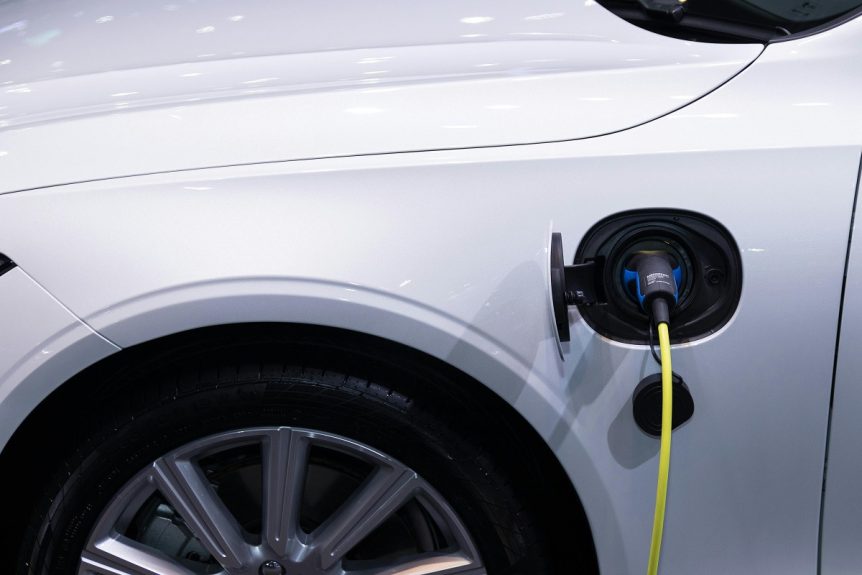The Payroll Tax General Knowledge Group has answered the question of whether a reimbursement for charging the company car by the employee at home based on the consumer price or the final consumer price remains outside the payroll scope. It also took a new position on the reimbursement of charging costs for a company car.
Introduction question 1
An electric car has been provided to an employee. The employee charges the car at his residence. For the year 2023, a price cap applies to all households and other customers with a small consumer connection to electricity and gas networks or a connection to a heat network. The price ceiling for electricity is €0.40 per kWh (including tax) up to a usage of 2900 kWh. For energy consumption above the ceiling, households and other small consumers pay the tariff from the energy contract.
Question 1
How high is the allowance the employer may give to the employee untaxed?
Answer 1
The employer can provide untaxed reimbursement for the employee's actual expenses (intermediate expenses) or enter into an untaxed business transaction with him.
Actual cost: The employer may provide untaxed reimbursement of the integral cost of electricity to the employee. The integral cost price is determined by dividing the employee's variable and fixed costs by the number of kWh consumed by the employee. Those costs may also include a proportional part of the depreciation of solar panels. The price ceiling for energy can reduce the integral cost price.
Business transaction: If an employer and an employee agree on the resupply of energy under business conditions, this transaction also takes place outside the salary sphere. In this business transaction, the employee can also co-supply the energy generated by solar panels.
In case of doubt, it is up to the tax authorities to make a plausible case that the reimbursement is higher than a reimbursement under business conditions or a reimbursement of intermediate costs.
A previous position on this has thus been dropped.
Introduction question 2
An employer provides employees with a company electric car. At their residence, the employer has had a charging station installed. The employees pay the electricity costs for charging the company car via their own (private) meter to their energy company. The employer reimburses these electricity costs to the employees. Every kilowatt-hour (hereinafter kWh) consumed for charging the car is automatically registered by the charging station and then passed on to the employer by the party administering car charging for the employer. This forms the basis for reimbursing the (intermediate) electricity costs of the company car to employees.
The energy price for each kWh, in addition to a fixed supply and transmission tariff, consists of the following components:
- the variable delivery rate
- the storage for renewable energy (ODE)
- energy taxation
- energy tax reduction
Regarding the energy tax reduction, it can be noted that the government considers part of energy consumption as basic needs on which no tax has to be paid. The energy tax is therefore reduced by a fixed amount per electricity connection per year, settled through the energy bill. A person who pays less energy tax in a year than the amount of the tax reduction will also receive the full reduction. This reduction was greatly increased from 1 January 2022 to compensate for increased energy prices.
Because determining the amount of the fee on a declaration basis leads to a large implementation burden, also given the large variation in energy contracts and prices, the employer requests the inspector to agree to apply the average consumer electricity price published by CBS (hereinafter: consumer price). However, CBS also uses lower rates, namely the average end-user prices (hereinafter: end-user price). For a further explanation of these prices, see the CBS site.
The employer argues that the difference between the two CBS rates is formed by the fixed price components (parts 2, 3 and 4); on average a negative amount due to the reduction in energy tax. It wants to disregard the fixed price components because these amounts do not depend on the actual consumption of energy for the charging station. Thus, the employer wants to assume the consumer price.
Question 2
Does a reimbursement from the employer based on the consumer price or the end-consumer price remain outside the payroll sphere?
Answer 2
No, because the employer does not make a plausible case that the reimbursement equals the employee's actual expenditure on electricity for the company car (intermediate costs). Also, the reimbursement cannot be classified as a business transaction.
Earlier, the knowledge group ruled that in a volatile market, it is not plausible, that a random third party will commit to a fixed price with a chance of a (big) disadvantage. Meanwhile, fixed-price contracts are common.
However, the knowledge group believes that there is no business transaction in the case where the employer gives a fee based on an average price set by CBS. CBS figures provide insight into the course of prices paid by Dutch households for energy on average. The data used include both new contracts and contracts entered into previously. Leading in assessing whether there is a market-based agreement is the price offered in the market at the time of making the agreement between the employer and the employee.
Example for Question 2
An employer and employee agree 1 September 2024 that the employer will reimburse the electricity costs to the employee for charging the electric car via his own (private) meter. The reimbursement amounts to €0.26 per kWh. The agreement is valid until 1 September 2025. The agreement qualifies as business as the compensation remains within the range of prices per kWh offered in the market on 1 September 2024 for a one-year term.
Compensation higher or lower than the actual cost may have an effect on the level of wages. This is at the discretion of the tax authorities.
Tip: Here is the full text of the positions: Question 1 and Question 2.


